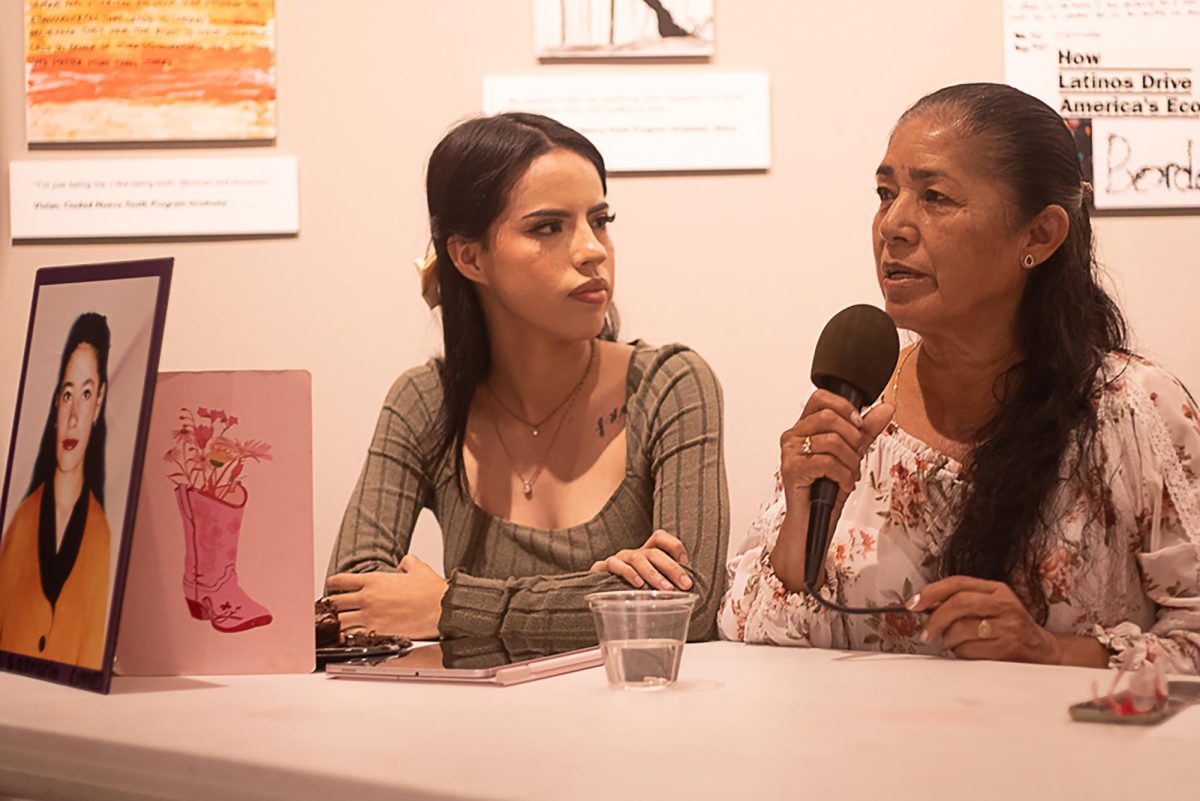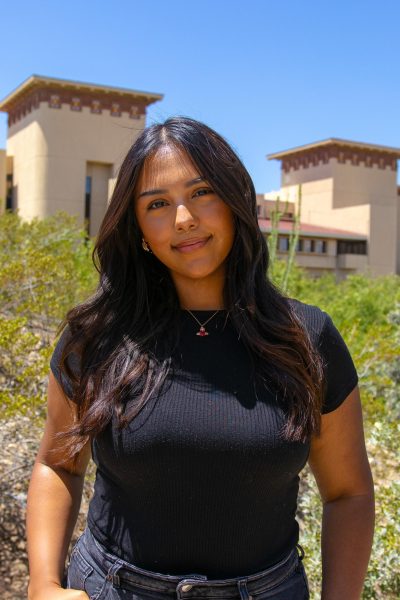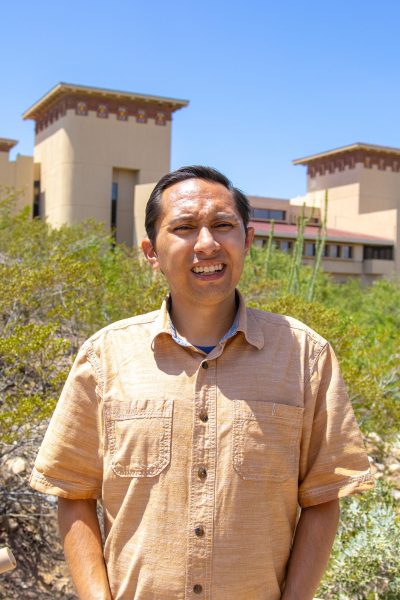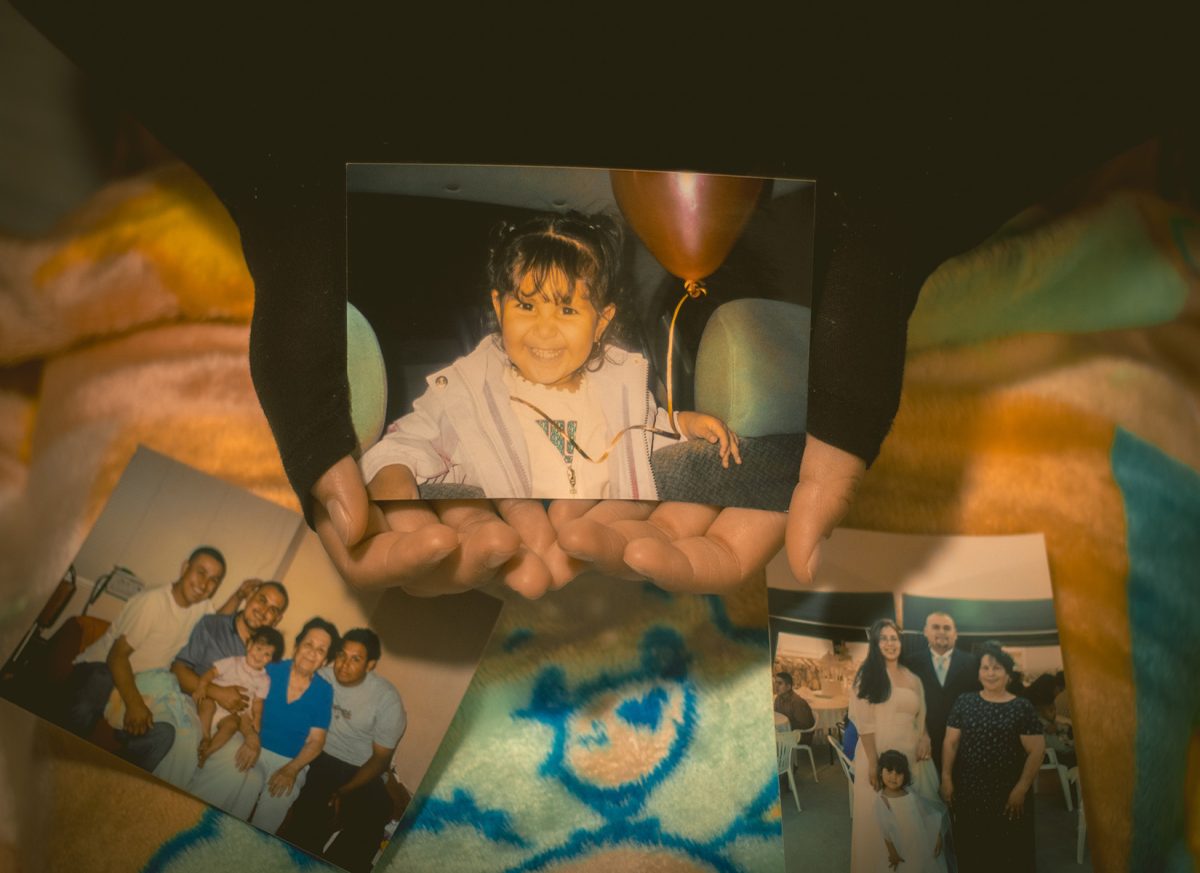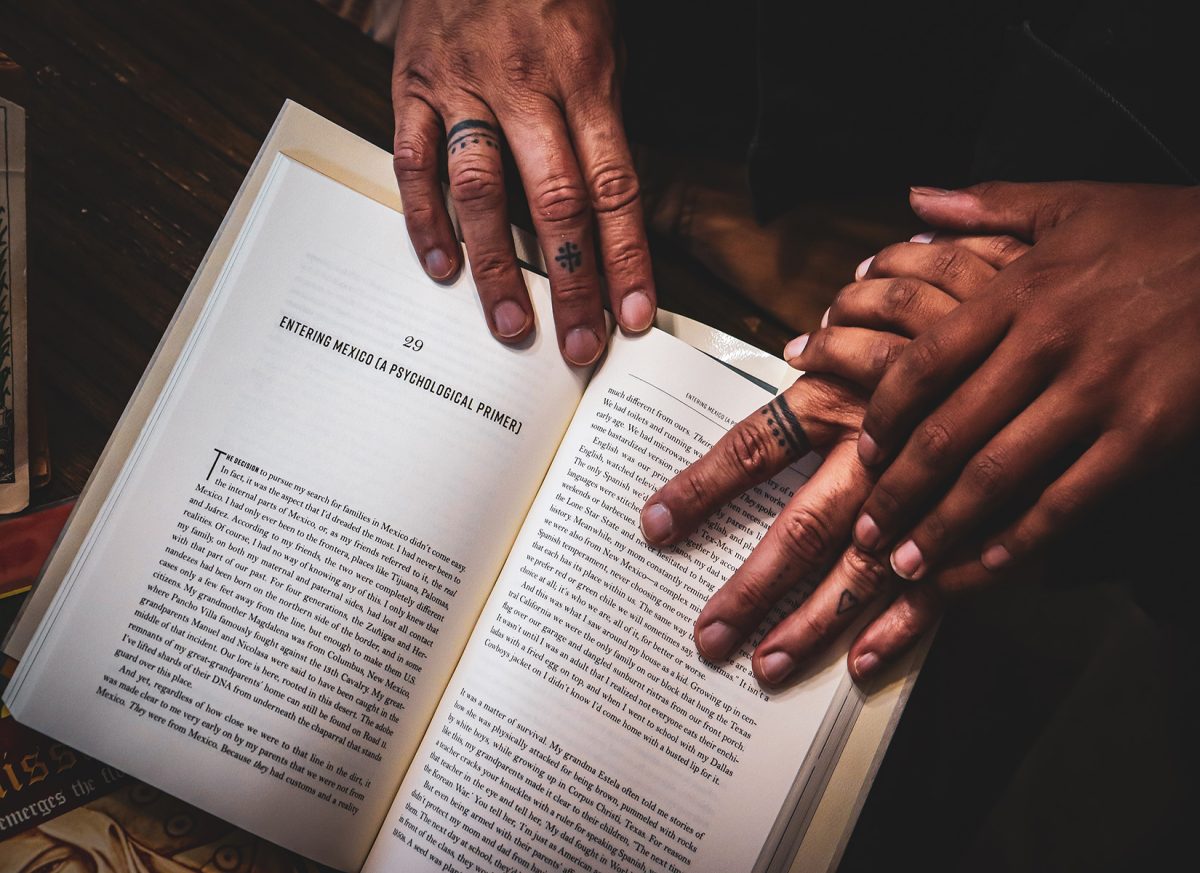On Thursday, October 24, the University of Texas at El Paso hosted a book launch for the release of Frontera Madre(hood): Brown Mothers Challenging Oppression and Transborder Violence at the U.S.-Mexico Border.
The event, held at the Centennial Museum, highlighted stories from the collection of essays edited by Cynthia Bejarano and Cristina Morales, exploring the vast concept of mothering and its connection to geopolitical border struggles.
Featuring contributions from over 30 people, Bejerano and Morales used this book as an opportunity to share the experiences and resistance of Latinx, Black and Indigenous mothers on both sides of the U.S. Mexico border.
“The idea was to create a space to collect all of these stories,” said Bejerano. “The testimonials, the survival tactics and everyday experiences of women. Not just of women who are mothers, but of women who mother in action, of women who’s mothering is not biological solely but is in the heart and in the soul.”
Morales shared that this collection seeks to capture the voices of the border and provide a human and dignified narrative space for migrant experiences.

The cover artwork for the book was created by artist Paola Isabel Nava González. Initially, the illustration was meant to accompany the testimonial of Gonzalez’s grandmother, Paula Flores Bonilla, who lost her daughter in the ongoing femicides in Ciudad Juárez.
“I remember that me and my cousins when we were little, we would go with my grandma to the protests wearing t-shirts with my aunt’s face on them,” said González.
González’s aunt began working in a maquiladora at age 16, before going missing after her shift one night. Her body was later found and she was pronounced dead. Since then, Bonilla has continued to make it her mission to demand justice.
She created Voces Sin Eco (Voices Without Echo), a group advocating for the families of femicide victims.
Over the years, she has been instrumental in mobilizing her community, bringing basic utilities like water, sewage, and electricity to underserved neighborhoods.
González shared how her grandmother’s persistent fight for justice for her aunt’s murder inspired her.
“All my life I’ve seen her fight for justice for my aunt’s case and I’ve had the opportunity to see the results of all her efforts,” said González. “My grandma is my hero, and she’s my inspiration, not only in my life, but also in my art.”
As the event continued, Bertha Bermudez Tapia, an assistant professor of Sociology at New Mexico State University, continued the conversation and the theme of mothering by bringing up the “Sidewalk School,” an initiative started by asylum-seekers to educate children inside of a refugee camp in Matamoros, Mexico.
“They (the children) were just sitting there without anything to do and the time kept passing and they were very worried about what was gonna happen with these children,” said Tapia. “So, they started to teach the children on the sidewalks near the camp.”
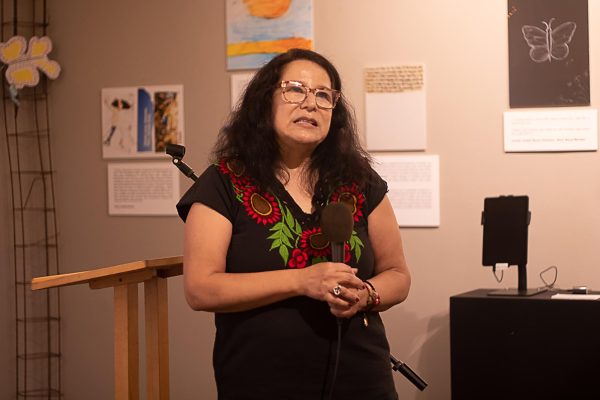
What began as educational classes held on sidewalks has evolved into a dedicated learning space, now staffed by over 60 teachers and teaching assistants who, like many of their students, experience the possibility of displacement in the refugee camp.
Under the leadership of Black Latina activist Felicia Rangel-Samponaro, the school has made a profound impact, reaching over 10,000 students since its founding.
As the evening unfolded, conversations about the meaning and realities of motherhood along the border deepened. Stories emerged from professors, researchers, concerned mothers, and individuals who have tirelessly advocated for a better future for their children and communities.
Bejarano expressed her gratitude to the contributors, emphasizing that the book seeks to honor all the women who, despite the hardships, continue to resist and nurture their communities.
The event at UTEP served as a reminder that the role of mothering can be a form of resistance and transformation, reminding audiences that mothering is both deeply personal and profoundly political, a force that continues to be essential for border communities.
Rumi Sevilla Hernandez is a staff reporter for The Prospector and may be reached at [email protected]

